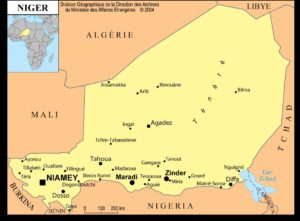Nos projets
NOS PROJETS EN COURS
Niger:
Children’s participation in Africa for a network to combat the sexual exploitation of children (PARLE)
Location
Commune of Niamey (capital) and Téra region (border with Burkina Faso and Mali)

Duration
January 2018-December 2019
Context
Niger is a landlocked country in sub-Saharan Africa with low income and limited natural resources. The protection of children from sexual exploitation is an issue in the country and a concern for the monitoring committees of international human rights instruments. In 2016, the Committee on the Protection of the Rights of All Migrant Workers and Members of Their Families, and the Committee on the Elimination of Discrimination against Women in 2017, expressed concern about the situation of child marriage and its links to trafficking, as well as the sexual exploitation of children in prostitution[1].
In Niger, the implementation of children’s rights as stipulated in the law comes up against certain realities, including the mobilization of technical and financial resources by the State. In reality, limited knowledge of everyone’s rights, duties and responsibilities in child protection, and certain social, cultural and religious practices, contribute to hindering child protection. It is therefore important to strengthen local actors in terms of capacity (technical and financial) to receive, shelter, take care of and reintegrate child victims in Niamey (capital) and in rural areas (Téra Regions).
The project is part of a multi-country project where programmes are implemented in ten countries in sub-Saharan Africa with activities adapted in each country according to the experience, history and alliances identified in the latter.
Project Objective
Realize the right of children to live free from all forms of sexual exploitation
Expected Results
- Victims/survivors of sexual exploitation are provided with appropriate services for their effective and sustainable reintegration
- Children acquire the knowledge and reflexes to protect themselves
- Protection actors know how to respond effectively to children’s needs in the face of sexual exploitation
- Knowledge and recommendations on the sexual exploitation of children are produced and shared to inform public policy
- Policy makers, protection actors and the general public are mobilized around the issue of sexual exploitation and advance policies, legislation or programmes to combat the sexual exploitation of children
Target Groups
- Children and/or young people at risk or victims of sexual exploitation
- Families and communities
- Actors involved in child protection and their structures
- Government of Niger and policy makers
Beneficiaries
3366 Children and/or young people at risk or victims of sexual exploitation:
- 80 Children and young people in care for reintegration
- 36 Children and young people followed in their reintegration process
- 250 Children and young people informed about risks and self-protection mechanisms
- 3000 Children and young people sensitized (schools)
800 Households: parents, guardians, and communities
- 800 Communities on gold mining sites
280 Actors involved in child protection and their structures (10):
- 36 Members of the protection committees formed
- 160 Community leaders trained
- 60 Protective actors (police, state services, etc.) trained
- 20 Journalists trained
- Structures: 20 political decision-makers and the government of Niger
Budget
112,500 Euros.
Implementing Partners:
ANTD , Nigerian partner : http://antd-niger.blogspot.com/
ECPAT France : https://ecpat-france.fr/
ECPAT International : www.ecpat.org
RISE Learning Network : https://riselearningnetwork.org/
Institutional Partner:
Ministère des Affaires Etrangères et Européennes de Luxembourg
Agence Française du Développement
Facts
Legal age for marriage: 18 years for men, 15 years for girls
Convention on the Rights of the Child: signed and ratified in 1990
Child labour (2010-2016): 31%.
Early marriage (2010-2017), married before 15 years of age: 28%
Early marriage (2010-2017), married before 18 years of age: 76%
[1] Convention internationale sur la protection des droits de tous les travailleurs migrants et des membres
de leur famille, Observations finales concernant le rapport initial du Niger (CMW/C/NER/CO/1, paras. 30 et 51) ; Convention sur l’élimination de toutes les formes de discrimination à l’égard des femmes, Observations finales sur le rapport unique valant troisième et quatrième rapports périodiques du Niger (CEDAW/C/NER/CO/3-4, paras. 24 et 25)

